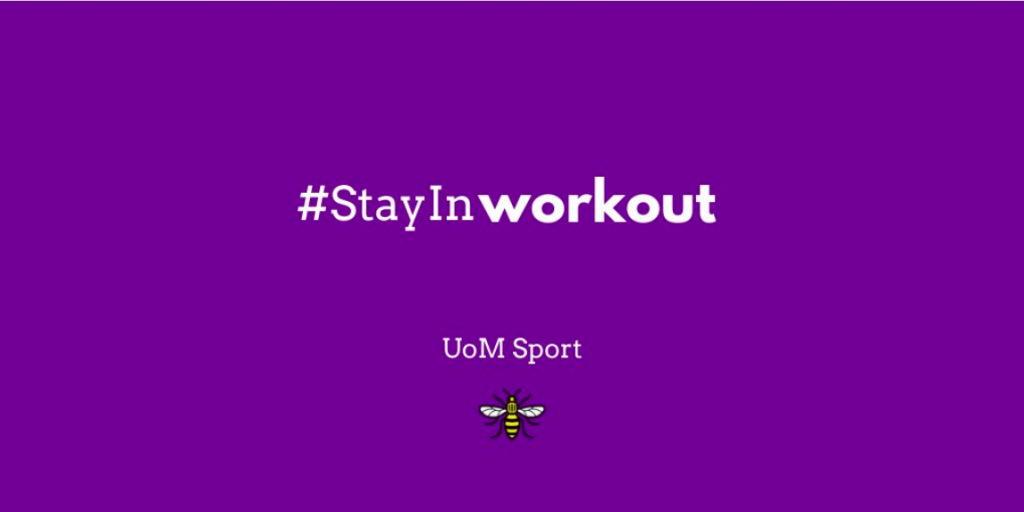
Six Ways to Wellbeing: Coping with Self-Isolation (Part 2)
In the second post of our three part series on applying the Six Ways to Wellbeing to self-isolation and social distancing, we look at being active and being healthy.
You can see our previous blog on the importance of connecting with others at this time and the joy of learning and discovering here.

Physical activity can help us to think and feel positive. We sleep better, have more energy and can use our time exercising to be present in the moment.
Exercising outside
As of 23rd March 2020, the government have advised that people can exercise outside of their home once a day, as long as a distance of at least two metres is kept from others. Therefore, if you are able to keep a safe distance from others, why not go for a walk, cycle or run? Obviously, the situation is changing on a regular basis, so please check the latest government guidelines here.
Stay in, workout
If you live in a busy area where social distancing while exercising isn’t possible, then you can get creative with in-home workouts. Sport England is running the #stayinworkout campaign and their website has loads of ideas, including using household objects (including milk bottles!) as workout equipment.
UoM Sport is also getting involved with #stayinworkout and you can follow them on Instagram, Facebook and Twitter.
Online exercise channels
Although gyms have closed their doors for the time being, many of them are streaming workouts online. Check out your gym’s website to see the virtual classes that they have to offer.
Alternatively, there are countless Youtube exercise channels designed to keep you fit at home (credit: Liverpool Echo). The most famous one is perhaps Body Coach TV, where Joe Wicks offers free home workouts for to everyone. However, there are lots of other free options, including MadFit for HIIT (High-intensity interval training) and Boho Beautiful for virtual yoga.

A healthy body will help you keep a healthy mind.
Food and mood
Think about your diet. Your appetite might change if your routine changes, or if you’re less active than you usually are. Eating regularly, drinking enough water and keeping your blood sugar stable can help your mood and energy levels. However, make sure you are taking in the right stuff! A family size bar of chocolate is a tempting comforter but the resulting sugar crash can negatively disrupt your energy levels. Check out Mind for their extensive information on mood and food and the NHS website for ideas on eating well.
Let your favourite restaurant come to you
Your takeaway doesn’t have to consist of junk food! More restaurants than ever are currently running delivery services. Check your favourite restaurant’s website to see if they are now delivering or refer to local lists, such as this one from the Manchester Evening News, summarising the businesses that are now offering delivery.
Let nature soothe you
Research suggests that a two-hour dose of nature a week significantly boosts health and wellbeing. It’s still possible to get positive effects from nature while staying at home. You could try the following:
- Spend time with the windows open to let in fresh air.
- Order flowers or potted plants online for your home.
- Use natural materials such as leaves, flowers, feathers, tree bark or seeds from your garden to decorate your living space, or use them in art projects.
- Arrange a comfortable space to sit, for example by a window where you can look out over a view of trees or the sky, or watch birds and other animals.
- Look at photos of your favourite places in nature. Use them as the background on your mobile phone or computer screen, or print and put them up on your walls.
- Listen to natural sounds, like recordings or apps that play birdsong, ocean waves or rainfall.
- Get as much natural light as you can. Spend time in your garden if you have one, or, if you can keep a safe distance from others, open your front or back door and sit on the doorstep.
Please feel free to share with us any positive stories or tips on wellbeing in the comments section below, by emailing us at uomsalcstudents@manchester.ac.uk, or via Facebook, Twitter or Instagram.
For more tips, have a look at our final post on the remaining two Ways to Wellbeing (Take Notice and Give).

0 Comments